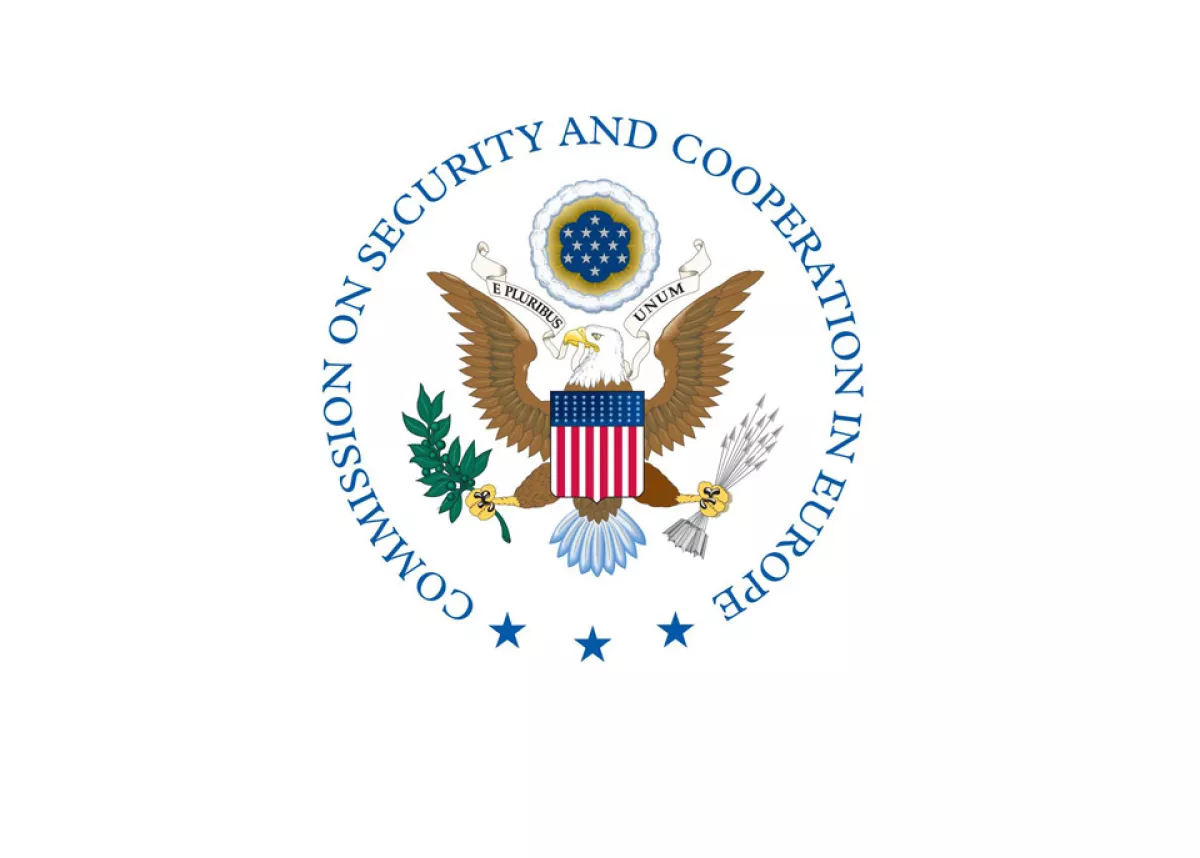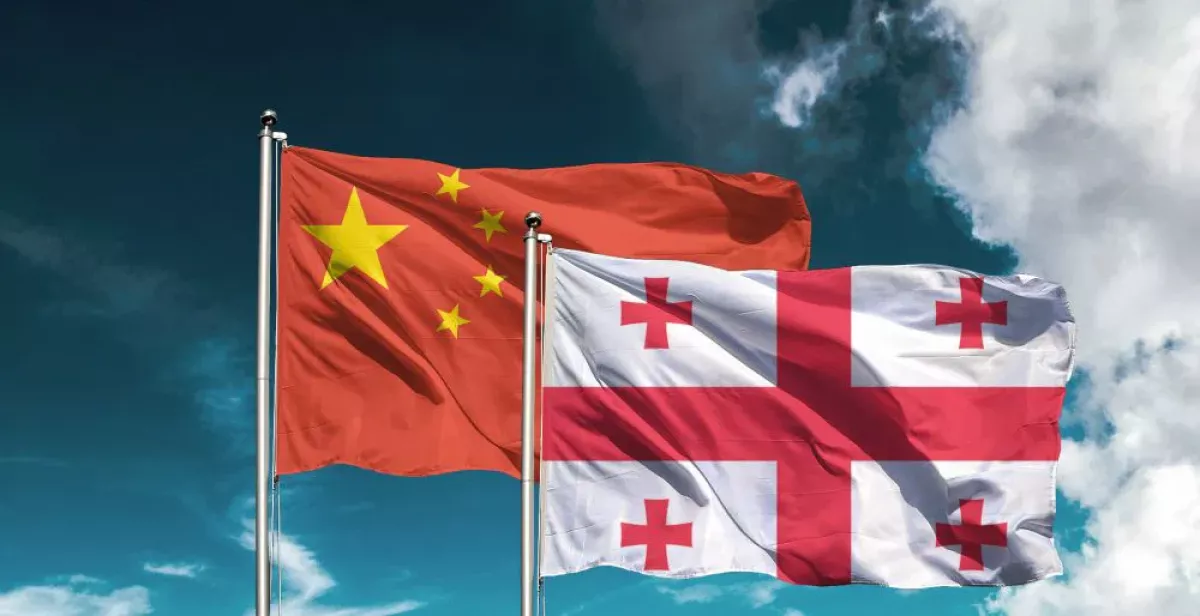Georgia between the US and China Trade wars and the Middle Corridor
Georgia may soon become a key point in geopolitical confrontation, but not so much between the US and Russia as between the US and China. This became evident after Donald Trump announced new tariffs on goods from nearly 150 countries. As a result, the US imposed tariffs of 20% on goods from the EU, 34% on Chinese goods, 24% on Japanese goods, and 25% on South Korean goods.
Consequently, manufacturers will begin scrambling to find "alternatives" to the American market, which will make new transit routes and communications that are unrelated to the US market even more in demand. In this context, interest in Georgia, which is key to the development of new transit routes in Eurasia, will rise sharply, as will interest in the transport and logistics infrastructure being developed in the country.
The protectionist measures by the US will hit China the hardest, the "world's workshop." Beijing has already called on the United States to immediately cancel the latest tariffs and promised to take countermeasures to protect its interests. It has been announced that starting from April 10, the Chinese authorities will impose additional tariffs of 34% on all products imported from the US.
The beginning of a full-scale "trade tariff war" between the US and China is now evident. This confrontation is likely to take on a geopolitical scale and shift to Eurasia, where China has recently been expanding its trade, investment, and communication-logistical influence. As a result of the new confrontation between China and the US, there will be a sharp intensification of the geopolitical struggle for the Middle Corridor, where one of the key countries is Georgia. It is here that China plans to build the deep-water port of Anaklia. For China, which will need to offset losses from "tariff barriers" in the US market by selling its goods in Europe, access to the European market via the Middle Corridor and Georgia becomes significantly more important.
It should also be noted that the trade tariff war between the US and China broke out shortly after even closer cooperation between China and Georgia in the financial sphere began to take shape. The National Bank of Georgia and the People's Bank of China signed a memorandum of bilateral cooperation. However, on the other hand, just before the actual start of the "trade tariff war" between the US and China, members of the Helsinki Commission from both parties expressed concern about the Georgian government's decision to transfer the rights to develop the deep-water port of Anaklia to a Chinese conglomerate, which includes firms that have been placed under US sanctions. A joint statement was published by the Chairman of the US Helsinki Commission Senator Roger Wicker, Co-Chairman Congressman Joe Wilson, Senator Sheldon Whitehouse, Congressman Steve Cohen, Congressman Mark Green, and Senator John Cornyn.

According to members of the US Helsinki Commission, the development and control of the Anaklia port will have far-reaching implications both for China’s ability to "campaign of economic coercion in the Black Sea region" and for "Georgia’s future as an independent, democratic state."
“We are troubled by reports of Georgian Dream’s decision to surrender control of its Anaklia deep-sea port to a CCP-backed, US-sanctioned conglomerate. Developers involved in this deal, including the China Communications Construction Company, have a history of using infrastructure development projects to exploit and destabilize their host countries and deepen those countries’ dependence on China. China’s growing presence in the Black Sea, in collaboration with Russia, makes the region less safe and restricts free trade and commerce. By going forward with this deal, Georgian Dream would be further endangering their country’s democratic trajectory and ability to determine its own economic future. We urge Georgian Dream to reconsider this decision and evaluate bids to develop its critical infrastructure fairly and transparently,” the US Helsinki Commission members said in their statement.
As for the alleged “Russia-China cooperation” highlighted by members of the US Helsinki Commission, recent geopolitical trends indicate that this partnership is purely situational. Moreover, in light of US efforts to bring an end to the Russia-Ukraine war, China appears to be increasingly inclined to see the conflict continue. In reality, the war in Ukraine brings considerable benefits to China: on one hand, the heavily sanctioned Russian Federation is forced to sell its resources to China at discounted prices; on the other hand, the combat effectiveness of both sides critically depends on Chinese supplies.
This is especially true for drones, which have become a decisive factor on the battlefield. Considering Ukraine’s clear and significant advantage in drone warfare—and the fact that the majority of drones are assembled from Chinese components—it remains unclear whose “ally” China truly is.
It is also possible that, as the trade war between the United States and China escalates into a more serious geopolitical confrontation, Washington may attempt to "pull" Russia away from China—or even pit the two Eurasian powers against one another. This would further complicate the strategic landscape in regions where the interests of all three geopolitical players intersect, including the South Caucasus.
In the United States, there is already growing discontent over the deepening ties between Georgia and China. For now, this dissatisfaction is being voiced by individual members of Congress and senators affiliated with the Helsinki Commission—some of whom had previously supported anti-government protests by the Georgian opposition. However, it is entirely possible that this discontent will soon be echoed at the level of the US Department of State.

As a result, new questions are emerging regarding the future of US-Georgia relations. On one hand, the change of administration in the US has brought in a conservative agenda promoted by Donald Trump and his circle, which aligns more closely with the ideology of the Georgian Dream party than the liberal policies of the previous Biden administration. On the other hand, Joe Biden often turned a blind eye to China’s economic activity in the Caucasus—something Donald Trump is unlikely to tolerate.
The pro-Western opposition in Georgia, which has already criticised Georgian Dream for what it sees as an “excessive” tilt toward China, is now likely to intensify its anti-China rhetoric. It may promise to scale back Chinese investment projects or replace Chinese investors with Western partners—particularly in the case of the Anaklia port—if it comes to power. However, the opposition could face its own set of challenges in pursuing this course.
The point is that following the sharp rise in US tariffs against nearly all of its trading partners, a rapprochement between the EU and China appears to be taking shape as part of a broader pushback against American protectionism. As a result, although the EU leadership continues—largely out of inertia—to criticise the current Georgian government, Georgian Dream’s cooperation with China, particularly regarding the strategically important Middle Corridor, is beginning to align with a potential geopolitical convergence between Europe and China.
For a united Europe, disruptions to the functioning of the Middle Corridor, which passes through Georgia, are economically undesirable. Yet such disruptions are almost inevitable if the Georgian opposition resorts once again to forceful attempts to seize power—especially if this leads to Georgia being drawn into confrontation or even war with Russia.
Thus, the escalating trade war between the United States and China may, on the one hand, significantly heighten the interest of major geopolitical players in Georgia, and on the other hand, further complicate an already delicate situation surrounding large-scale investment projects involving China—such as the Anaklia deep-sea port.
Vladimir Tskhvediani, Georgia, exclusively for Caliber.Az








